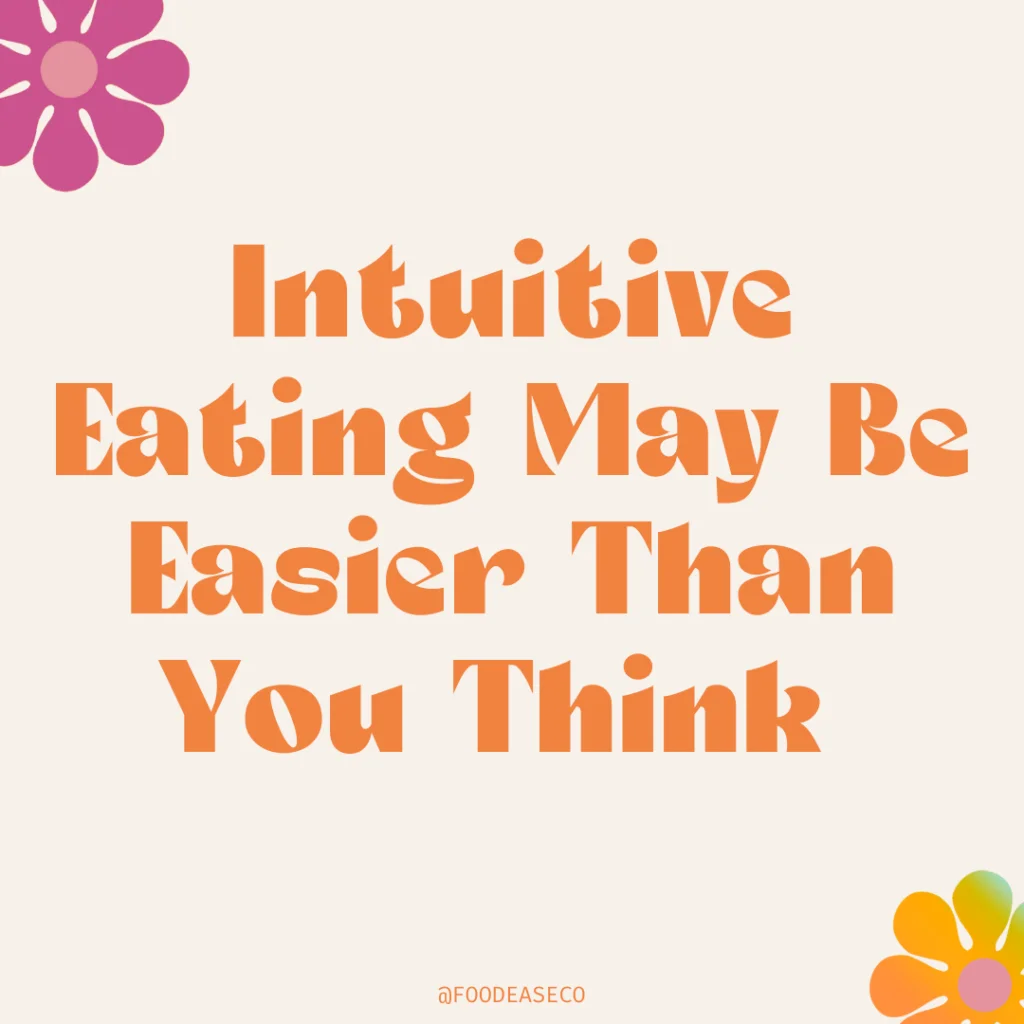What Changes After Two Sessions of Intuitive Eating Coaching?

Introduction
In today’s article my goal is to introduce you to the real, tangible changes that can take place after only a moderate period of intuitive eating coaching.
In order to accomplish this, I turn to the results of a recently published randomized controlled trial out of the Appetite journal.
This study compared effectiveness of 2 group sessions teaching non-dieting principles vs the control “brochure group” to measure effects on body image dissatisfaction, eating disorder symptoms, dietary intake, and intuitive eating. Not only did researchers examine strategies to promote body acceptance and dieting rejection, it also examined the effects of the intervention and control on anti-fat attitudes, or weight bias/stigma.

Study Methods/Intervention
The study participants were randomized into two groups: the intervention and “brochure control.”
Intervention
The intervention group met for two sessions led by psychology students. The goal of the sessions were to facilitate body acceptance, reject unhealthy dieting, and introduce health eating skills by teaching the components of intuitive eating.
These are the kinds of topics you can also expect to go through with an intuitive eating-focused dietitian.
Control
Participants not assigned to the intervention received two brochures on body image and the USDA My Plate guidelines.
The brochure condition is supposed to reflect a typical amount of dietary guidance typically received by college students
What Changed? (Measures/Results)
So how do we measure the effectiveness of an intuitive eating intervention?
This study looked at unhealthy dieting behaviors, body image dissatisfaction, eating disorder symptoms, dietary intake, intuitive eating with a focus on weight acceptance, as well as effects of these behavior changes on mental health related quality of life.
The specific measures used were as follows:
· Dieting measured by The Weight Loss Behavior Scale
· Intuitive Eating measured with the Intuitive Eating Scale
· Body image measured by the body shape questionnaire
· Eating concerns measured by the Eating Attitudes Test-26 (EAT-26)
· Dietary Intake measured by the PrimeScreen, a questionnaire that measures the frequency of consumption of foods and food groups.
· Anti-fat attitudes measured the Anti-Fat Attitudes Questionnaire
· Mental health quality of life measured by the Short Form-12, a 12 item measure of health related quality of life.
· To measure knowledge learned during the intervention and in the control group brochures, questions were developed directly assessing content covered in each arm of the study.
Participants were measured on these aspects at baseline, post-treatment, and at a 1-month follow-up. The intervention group reported a significant (p=.013) decrease in eating based on external cues, increased antidieting attitudes, and decreased body image dissatisfaction at follow up compared to the control group.
It is important to note this brief intervention also produced significant (p < .001) post-treatment reduction in anti-fat attitudes, which included dislike of fat people, fear of becoming fat, and attribution of fatness to lack of will power compared to the control group.. Weight bias is very common and pervasive in society and there is still much important work to be done to address these biases. I believe if we are talking about intuitive eating, we also need to be talking about our own weight biases and promoting Health at Every Size®.
Conclusion
Overall, these are promising results that demonstrate intuitive eating interventions, even in the short term, have great potential on dieting behaviors. Take this as a sign for those of you who may be on the fence as to whether this approach could be right for you. If you find yourself questioning this approach, feel free to reach out so I can best support you in making a decision that works best for you!
Reference
*purposely excluded BMI numbers
Have a Question?


Do you have any questions or suggestions? Feel free to contact us! Just leave your email here, and we will get back to you shortly.